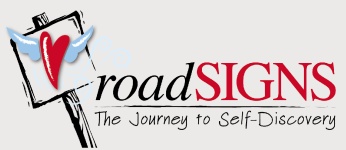At some point in your life, most of you will have had your IQ (Intellectual Quotient) measured. IQ testing was designed to measure your analytical and linguistic skills. I experienced my first IQ testing at the end of grade three when students were being evaluated for an accelerated course of study. I did not really understand it at the time; I just remember being disappointed that I was not chosen to skip a grade. What a terrible way to brand children!
In the ensuing years other “Q’s” have emerged including Goldman’s EQ designed to measure Emotional Intelligence (EI). EI relates to one’s inner landscape of emotional self-awareness, ability to self-assess abilities and level of self-confidence. An emotionally intelligent person has also honed their ability to be perceptive of and sensitive to the emotions and feelings of others, skills which are now viewed as vital to business and life success. Our view of intelligence was expanding.
Next came spiritual intelligence, defined by Danah Zohar in her book SQ: Connecting With Our Spiritual Intelligence. Zohar describes SQ as the intelligence with which you address and solve problems of meaning and value, where you consider your actions and your life in a wider, richer, meaning-giving context. SQ invites you to consider that one course of action or one life-path may be more meaningful than another. A person with high SQ is connected to a deeper sense of purpose, lives from a sense of clearly dfined core values, and leads a life that is conscious and intentional. They typically see the interconnectedness of all life. Again, our view of intelligence was expanding.
I propose yet again another “Q”, your LQ which I refer to as Life Intelligence. Life Intelligence is the capacity to be aware of who you are being in the world and of the gifts, talent and value you add to any given situation. In my professional view, LQ is the vital link connecting IQ, EQ and SQ, helping you to assess and synthesize the impact you are having in your world and connecting the dots of your life and the many experiences which have brought you to where you are today. A high LQ implies that you see yourself for who you are, you recognize your uniqueness, and you celebrate the many ways in which you contribute.
In measuring your Life Intelligence, you can reflect on and respond to the following questions:
- As I review the course my life has taken, what have been my greatest accomplishments?
- In listing these accomplishments, what do I notice about who I am?
- What are the strengths I have exhibited?
- What are the gifts I have brought to different situations?
- How have my actions impacted on the lives and circumstances of others?
- Where, in the day-to-day experience of life as it is today, are these gifts and strengths being expressed?
- What have I learned along the way and how am I applying the lessons?
- Am I fully aware of the difference I am making in my work, for my family and friends, in the way I choose to live my life?
- In what ways do I acknowledge myself for all that I am being?
You can see from these questions that LQ invites you into a new level of self-awareness, an in-depth view of the truth of who you are being and the impact you are having on your immediate environment. Note however, that this noticing is intended to be a celebration of who you are not a put down. The goal is to acknowledge yourself and to intelligently see yourself with new eyes.
There is much focus today in creating workplaces where employees can thrive, grow and learn. As a coach and organizational consultant, I know the difference that an organization’s environment can have on employees just as I recognize the effect the environment has on production and profitability.
At the same time, it is important to recognize each person’s internal environment and ask the question, “Am I creating an environment within me that allows me to thrive, grow and learn? Do I see my own inherent value and worth? Do I appreciate and acknowledge the contribution I make everyday?” Imagine the power of having both, an internal environment built upon your ability to acknowledge your self-worth married to an external environment which encourages you to contribute and expand.
Assessing your LQ forces you to examine what your life means, to remember your stories and personal successes, to consider how you want to continue to contribute and be remembered, and to become clear on what, if anything, you want to change.
You have a choice. If your life has not been lining up exactly the way you want it to at this point in your career, it may be indicative that you have some how lost your way, that perhaps you have forgotten who you really are. This is an important assessment to make for it is never too late to shift directions. Now is the time to become clear on what is perfect for you and to take attractive actions to forward the movement on the life you want to attract. What are you waiting for? The only person who can create an internal environment which allows you to thrive, learn and expand is you.
Know Yourself
The following options offer you the opportunity to complete you own Life Quotient Assessment. Remember, whatever you choose, the goal is to see yourself objectively and to celebrate who you are and who you are becoming.
Psychometric Assessments: Although some coach-consultants suggest that the field of Personality Theory is superficial or possibly ego-based, I view these assessments as an opportunity to develop an objective awareness of self. The assessment I recommend and currently use with my clients is the Lumina Spark Portrait which highlights your 24 qualities or strengths. (For more information go to http://www.roadsigns.ca/products/lumina-portraits-2/ )
Life Review: Take the time to look back over your life. Create a list of as many of your great accomplishments you can think of. Consider events that occurred throughout your life, in childhood and adulthood, in play and in work, with colleagues, friends and family. Identify as many as you can.
Next, choose three of these accomplishments, those which were especially meaningful to you, the events that give you that connected feeling inside, that give you a sense of completion and excitement, that bring a smile to your face and create joy in your heart. Write a paragraph or two about this accomplishment. Create a factual account of what happened, step by step, about each of these three accomplishments.
Finally, share your three stories with someone who cares about you. Ask them to listen deeply and to notice what gifts, strengths or talents are evident in your account of this special time. Once you are finished with your sharing, ask them what they heard. Write down all that they offer. Do not judge their comments. Notice what shows up.
Acknowledgment: Take the time to notice what types of feedback you have been receiving from others, both family members and co-workers. Specifically note that feedback which is complementary. Now notice how you respond to complements. Do you simply thank the giver or do you offer some self-deprecating response?
If your response is typically of the self – deprecating style, shift gears and simply thank the person. Secondly, repeat the compliment to yourself, as if you were initiating it. It goes like this, “I acknowledge myself for…”. The goal of self-acknowledgement is to reinforce your ability to see the difference you make and what you contribute to specific situations.
An Hour of Prime Time: One of my favorite all time questions, as coined by Gregg Levoy in his book Callings is as follows: If you were given one hour of prime time (on TV or radio) what would you speak about?
This question came to light again in the book, The Last Lecture, by Randy Pausch. Randy was dying of pancreatic cancer when he was invited to give the last lecture, an annual tradition at Carnegie Mellon University. Because Randy was aware that he had little time left, he chose to approach his lecture on what he knew for sure about life and what he wanted to impart to his students as well as his three young children. He understood that this was his hour of prime time and his teaching legacy.
Given the same challenge, what are your thoughts on life? Prepare and give your last lecture. Have someone videotape it for you. Share with your audience, real or virtual, what your life has stood for, what you have learned and what lessons you want to impart to them. Then take the time to view the tape – what becomes clear to you about you? This is your legacy on tape.
Adapted from ME FIRST – If I Should Wake Before I Die (2009) and the ME FIRST Playbook (2011), by Betty Healey (http://www.roadsigns.ca/wp/products/)
Until next time,
Betty


